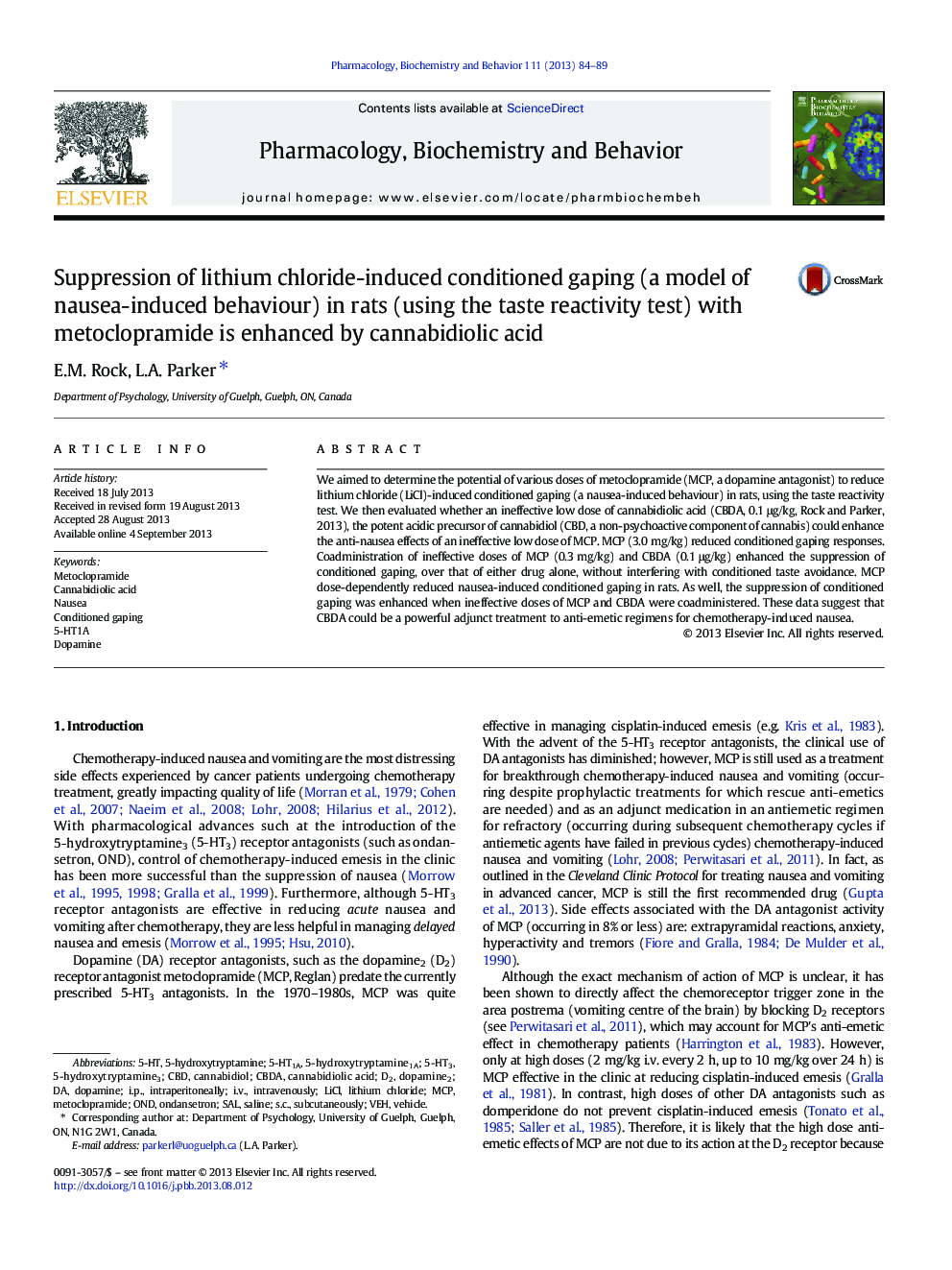| کد مقاله | کد نشریه | سال انتشار | مقاله انگلیسی | نسخه تمام متن |
|---|---|---|---|---|
| 8351642 | 1541872 | 2013 | 6 صفحه PDF | دانلود رایگان |
عنوان انگلیسی مقاله ISI
Suppression of lithium chloride-induced conditioned gaping (a model of nausea-induced behaviour) in rats (using the taste reactivity test) with metoclopramide is enhanced by cannabidiolic acid
ترجمه فارسی عنوان
سرکوب شدن لیز شدن ناشی از تهدید ناشی از کلرید لیتیوم (یک مدل رفتار ناشی از تهوع) در موش صحرایی (با استفاده از آزمون واکنش پذیری طعم) با متکللوپرامید با استفاده از اسید کاندیدایول
دانلود مقاله + سفارش ترجمه
دانلود مقاله ISI انگلیسی
رایگان برای ایرانیان
کلمات کلیدی
موضوعات مرتبط
علوم زیستی و بیوفناوری
بیوشیمی، ژنتیک و زیست شناسی مولکولی
زیست شیمی
چکیده انگلیسی
We aimed to determine the potential of various doses of metoclopramide (MCP, a dopamine antagonist) to reduce lithium chloride (LiCl)-induced conditioned gaping (a nausea-induced behaviour) in rats, using the taste reactivity test. We then evaluated whether an ineffective low dose of cannabidiolic acid (CBDA, 0.1 μg/kg, Rock and Parker, 2013), the potent acidic precursor of cannabidiol (CBD, a non-psychoactive component of cannabis) could enhance the anti-nausea effects of an ineffective low dose of MCP. MCP (3.0 mg/kg) reduced conditioned gaping responses. Coadministration of ineffective doses of MCP (0.3 mg/kg) and CBDA (0.1 μg/kg) enhanced the suppression of conditioned gaping, over that of either drug alone, without interfering with conditioned taste avoidance. MCP dose-dependently reduced nausea-induced conditioned gaping in rats. As well, the suppression of conditioned gaping was enhanced when ineffective doses of MCP and CBDA were coadministered. These data suggest that CBDA could be a powerful adjunct treatment to anti-emetic regimens for chemotherapy-induced nausea.
ناشر
Database: Elsevier - ScienceDirect (ساینس دایرکت)
Journal: Pharmacology Biochemistry and Behavior - Volume 111, October 2013, Pages 84-89
Journal: Pharmacology Biochemistry and Behavior - Volume 111, October 2013, Pages 84-89
نویسندگان
E.M. Rock, L.A. Parker,
